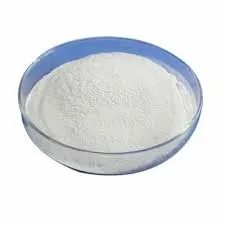
ное. . 19, 2024 20:08 Back to list
hydroxyethyl cellulose uses
The Versatile Applications of Hydroxyethyl Cellulose
Hydroxyethyl cellulose (HEC) is a cellulose derivative that has gained significant attention due to its unique properties and wide-ranging applications across various industries. As a non-ionic, water-soluble polymer, HEC is utilized for its thickening, binding, film-forming, and stabilizing capabilities. Let's explore the diverse uses of hydroxyethyl cellulose and its impact on different sectors.
1. Pharmaceuticals and Personal Care
One of the most prominent applications of HEC is in the pharmaceutical and personal care industries. In pharmaceuticals, HEC serves as a thickening agent that enhances the viscosity of liquid formulations, ensuring the consistent delivery of active ingredients. Its ability to provide a controlled release of medications makes it valuable in creating suspensions, gels, and ointments.
In personal care products, HEC is widely used in formulations such as shampoos, conditioners, lotions, and creams. It helps improve the texture and feel of these products while also stabilizing emulsions. Its gentle nature allows it to be suitable for sensitive skin, making it an ideal ingredient in various cosmetic formulations.
2. Construction Industry
The construction industry also benefits from the use of hydroxyethyl cellulose. It is commonly incorporated into cement, mortars, and adhesives to enhance their performance. HEC acts as a water-retaining agent, which improves workability and prevents the rapid evaporation of water during the application of these materials. This property not only aids in achieving a stronger bond but also extends the open time, allowing workers to adjust and manipulate the materials effectively.
Furthermore, HEC can improve the adhesion of tiles and improve the overall performance of plaster and drywall joint compounds. Its ability to enhance the flow and leveling characteristics of mortars makes it an essential additive in modern construction practices.
3. Food Industry
In the food industry, hydroxyethyl cellulose is renowned as a food additive that serves multiple purposes. It is used as a thickening agent and stabilizer in various food products, including dressings, sauces, and desserts. HEC helps maintain the desired consistency and texture of these products while preventing separation or settling.
hydroxyethyl cellulose uses

Moreover, HEC can enhance the mouthfeel of low-fat or reduced-calorie products, making them more appealing to consumers without compromising on taste. Its use in gluten-free formulations has also gained popularity, as it can improve the texture and binding properties in baking applications.
4. Paints and Coatings
HEC is a key ingredient in the formulation of paints and coatings due to its excellent thickening and stabilizing properties. It helps achieve the desired viscosity and flow characteristics, allowing for smoother application and improved coverage. Additionally, HEC aids in maintaining the stability of pigments and prevents settling, ensuring consistent performance over time.
In water-based paints, HEC enhances the leveling properties and overall finish of the coating. Its ability to form a film also contributes to the durability of the paint, making it resistant to wear and tear. As the demand for eco-friendly and low-VOC paints grows, HEC stands out as a suitable choice for formulators.
5. Agriculture
In agriculture, hydroxyethyl cellulose is used as a soil conditioner and biodegradable polymer. When incorporated into soil, HEC improves water retention and aeration, promoting healthier plant growth. It can also enhance the efficiency of fertilizers and pesticides by facilitating their slow release into the soil.
In hydroponic systems, HEC acts as a gelling agent that enhances the stability of nutrient solutions, ensuring that plants receive essential nutrients in a controlled manner. This application highlights HEC's versatility and importance in modern agricultural practices.
Conclusion
Hydroxyethyl cellulose is a remarkable compound with a vast array of applications across many industries. Its versatility as a thickener, binder, stabilizer, and film-forming agent makes it invaluable in pharmaceuticals, personal care, construction, food, paints, and agriculture. As innovation continues, the use of HEC is likely to expand even further, driving advancements in product formulations and enhancing functional properties across a wide spectrum of applications. Whether in improving the efficiency of construction materials or enhancing the appeal of personal care products, hydroxyethyl cellulose plays a vital role in meeting contemporary industry demands.
-
Unlocking the Benefits of HPMC Products: A Gateway to Versatile Applications
NewsAug.07,2025
-
Tile Bonding Cellulose: The Key to Superior Adhesion and Durability
NewsAug.07,2025
-
Hydroxypropyl Methylcellulose Powder: The Versatile Component in Modern Pharmaceuticals
NewsAug.07,2025
-
Hydroxyethyl Cellulose: The Versatile Solution for Various Industries
NewsAug.07,2025
-
Hydroxyethyl Cellulose (HEC): The Versatile Polymer for Various Applications
NewsAug.07,2025
-
The Ultimate Guide to Mortar Bonding Agent
NewsAug.06,2025







